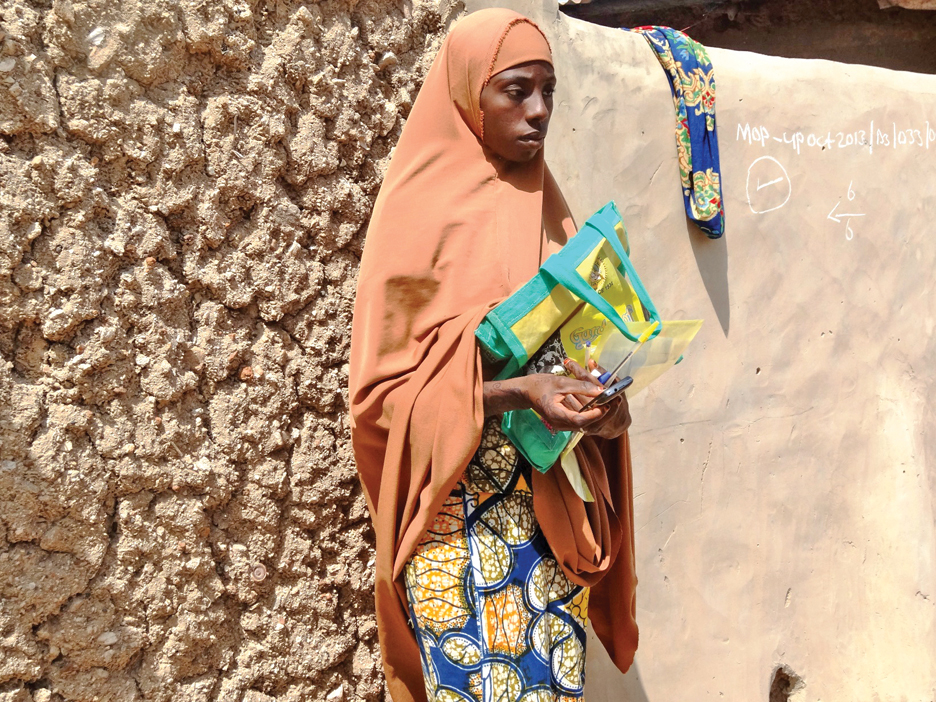AGENCE FRANCE-PRESSE
Mahmud Zubairu scrutinizes the computer screen, watching the progress of health care workers as they fan out across Nigeria’s northern Kano state where polio is prevalent.
The dozens of teams are going door to door to immunize every child under age 5 as part of an aggressive push to eradicate the debilitating disease. But this is a campaign with a difference: Zubairu, a doctor and coordinator of the vaccination project, can follow the workers remotely in real time, thanks to state-of-the-art technology.
“It is now easy to monitor the immunization coverage of each vaccination team because the phone trackers each team carries along generate tracks which are sent via satellite to our website,” he said. “That enables us to compute with a high degree of precision the number of houses the vaccinators have covered each day during a campaign.”
Kano state has been targeted because many parents, suspicious of immunization programs, reject the vaccine. Yellow electronic dots appear on satellite maps of each of Kano’s six target districts every time a vaccination team stays at a location for more than two minutes. Green horizontal and vertical grid lines divide an area into squares, with each box representing a house.
“If no tracks are found in any box, it means that house was not visited, and by that you can compute the number of houses covered and the percentage of coverage without being overwhelmed by the number of valid tracks generated in an area visited by vaccinators,” Zubairu said.
Nigeria, Pakistan and Afghanistan — the last three countries where polio remains endemic — are the focus of efforts to eradicate the disease, which also has risen sharply in Somalia and Syria due to unrest.
Efforts have not always been easy. Between 2003 and 2004, Kano state suspended polio immunizations for 13 months after some Muslim clerics and doctors claimed the vaccine could render girls infertile. As a result, Kano became a hot spot for transmission of the virus, which can cause paralysis that may lead to permanent disability and death.
The inoculation drive is now back on track, thanks to renewed awareness and support by local political leaders, traditional Nigerian chiefs and clerics.

